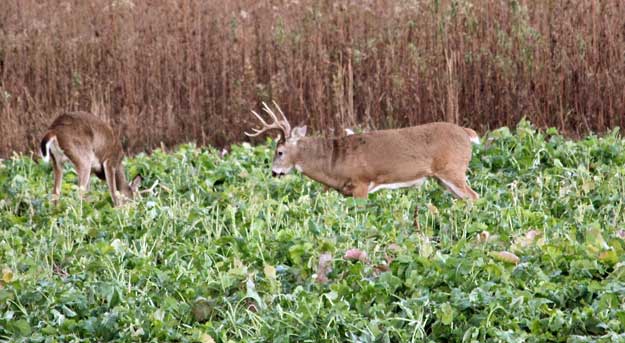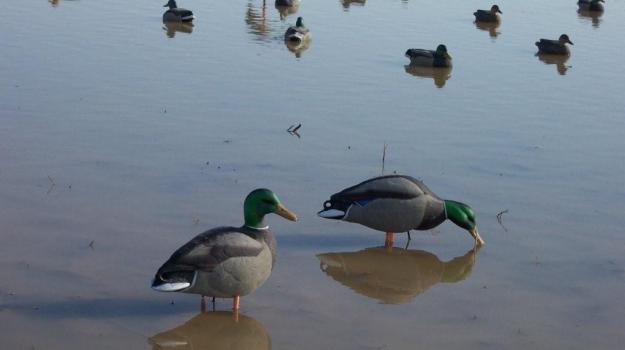
Today’s whitetail managers know what an important role food plots play in the drive towards a healthy herd and bucks with bigger antlers. Food plots can transform deer management, even on small tracts, and make your hunting dreams come true, but fewer understand why. What’s the big difference between food plots and their native vegetation? Or, why couldn’t supplemental feeding have the same impact? Here’s why;
On average, an acre of native vegetation will produce about 200 to 300 pounds of deer food annually at approximately 6% to 12% protein. Biologists agree that whitetails need about 16% protein (year-round) to express their potential. However, if they actually consumed that much you would see a browse line about 6 feet high and the acre of habitat would be destroyed. One deer can be supported on roughly 22 acres (average) without degradation of the habitat. However, body size, health and antler size are going to be well under their potential because of the poor average protein content of the native vegetation.
There are some that would argue that feeding corn or protein pellets makes everything alright. Corn, has approximately 8% protein, so even native vegetation is better than corn. The carbohydrates that corn produces does have a place, but even if you are feeding protein pellets at around 20% protein, you still have to consider predation, disease transmission, legality, aesthetics, the amount consumed by non-target animals and the cost. Please understand that supplemental feeding is a good thing pending you do it right. But even if you do everything correct it is shown that no matter what you feed or how you feed it, deer will only consume 20% to 25% of their diet from the supplemental feed! So you are not significantly increasing your property’s carrying capacity and you are not making a big impact on their nutritional intake either. You are still well below the 16% biologists say is necessary.
There is no way that you can supply the amount or the quality of food that you can for the cost, then by planting food plots. Food plots are going to decrease the average home range size for each deer in the area and in doing so can significantly increase your property’s carrying capacity! Food plots are going to supply well above the necessary 16% protein so your deer will have a chance to express their true health and antler growing potential. And remember we said that they will only consume 20% to 25% of their diet in supplemental feed. It is shown that they will consume approximately 75% to 80% of their diet in food plot crops! It is probably for two reasons; one, because it is more like browsing to them. Deer are naturally browsers. It is unnatural for them to stand at a feeder. Two, because of the quality of the forage - food plots produce forage that is much more palatable and digestible then corn, protein pellets or native vegetation.
A good management program will likely stress the importance of both, good nutrition to help grow big, healthy whitetails, and attraction to help with animal sightings and your harvest goals. Food plots will help your herd’s health, help your bucks express their true antler growing potential and make your hunting much easier.
This tip is courtesy of the GameKeepers Field Notes, a weekly wildlife and land management email newsletter produced by the Mossy Oak GameKeepers.
A GameKeeper by definition is someone who truly loves AND lives the land, the critters and nature…not just during hunting season but all the time. A GameKeeper wants to be outdoors every day and work the dirt while living their personal “obsession”.
Find out more about what makes a GameKeeper by visiting our website.




























